When performance is important you can use substr in combination with regexpr from base.
substr(Type, 1, regexpr(";", Type, fixed=TRUE)-1)
#[1] "SNSR_RMIN_PSX150Y_CSH"
Timings: (Reusing the part from @tyler-rinker)
library(stringi)
SAPPLY <- function() sapply(strsplit(Type, ";"), "[[", 1)
SUB <- function() sub(';.*$','', Type)
SUB2 <- function() sub(';.*','', Type)
SUB3 <- function() sub('([^;]*).*','\\1', Type)
STRINGI <- function() stri_extract_first_regex(Type, "^[^;]+")
STRINGI2 <- function() stri_extract_first_regex(Type, "[^;]*")
SUBSTRREG <- function() substr(Type, 1, regexpr(";", Type)-1)
SUBSTRREG2 <- function() substr(Type, 1, regexpr(";", Type, fixed=TRUE)-1)
SUBSTRREG3 <- function() substr(Type, 1, regexpr(";", Type, fixed=TRUE, useBytes = TRUE)-1)
Type <- c("SNSR_RMIN_PSX150Y_CSH;SP_12;I0.00V50HX0HY3000")
Type <- rep(Type, 100000)
library(microbenchmark)
microbenchmark(SAPPLY(), SUB(), SUB2(), SUB3(), STRINGI()
, STRINGI2(), SUBSTRREG(), SUBSTRREG2(), SUBSTRREG3())
#Unit: milliseconds
# expr min lq mean median uq max neval
# SAPPLY() 382.23750 395.92841 412.82508 410.05236 427.58816 460.28508 100
# SUB() 111.92120 114.28939 116.41950 115.57371 118.15573 123.92400 100
# SUB2() 94.27831 96.50462 98.14741 97.38199 99.15260 119.51090 100
# SUB3() 167.77139 172.51271 175.07144 173.83121 176.27710 190.97815 100
# STRINGI() 38.27645 39.33428 39.94134 39.71842 40.50182 42.55838 100
# STRINGI2() 38.16736 39.19250 40.14904 39.63929 40.37686 56.03174 100
# SUBSTRREG() 45.04828 46.39867 47.13018 46.85465 47.71985 51.07955 100
# SUBSTRREG2() 10.67439 11.02963 11.29290 11.12222 11.43964 13.64643 100
# SUBSTRREG3() 10.74220 10.95139 11.39466 11.06632 11.46908 27.72654 100
 Here's the code for the Benchmarks:
Here's the code for the Benchmarks: